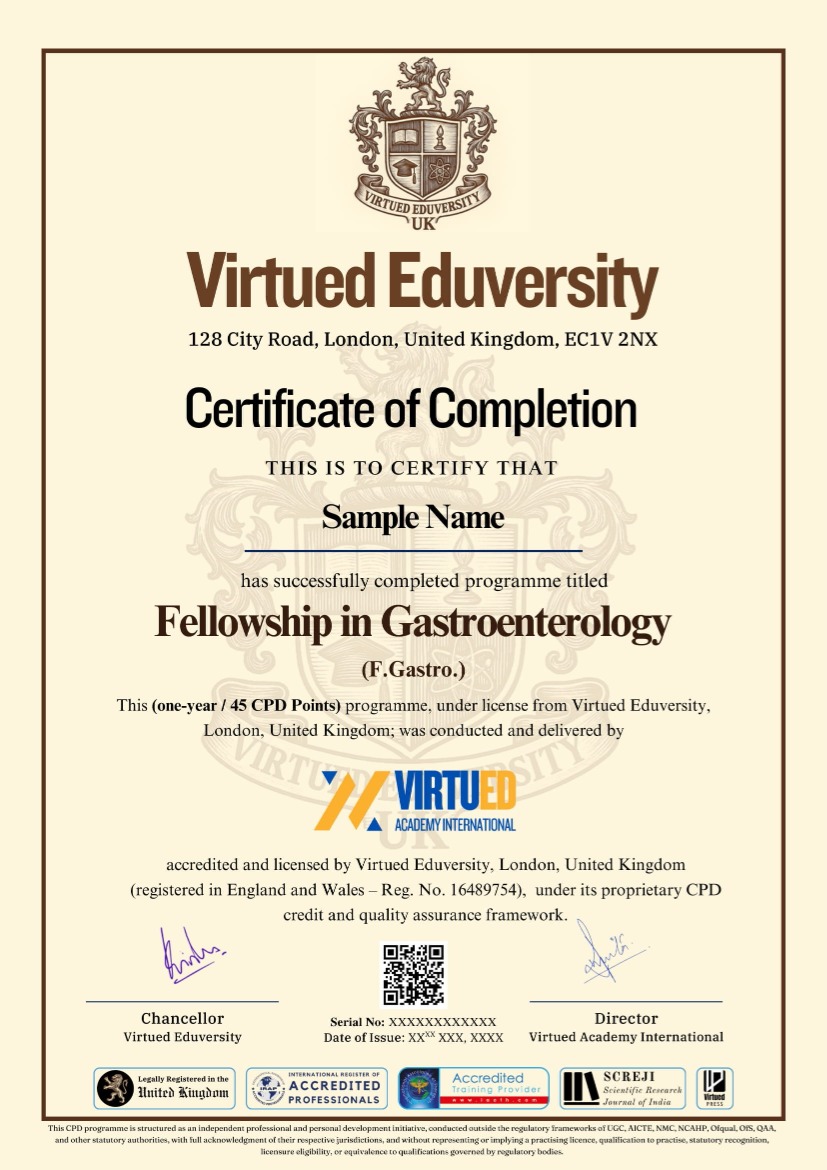There are no items in your cart
Add More
Add More
| Item Details | Price | ||
|---|---|---|---|
Fellowship in Gastroenterology
|
|
This curriculum delivers in-depth knowledge of gastrointestinal disorders, diagnostics, and treatment plans. It equips healthcare professionals to manage GI conditions confidently using clinical protocols, endoscopy interpretations, and pharmacologic interventions — ideal for general practitioners, GI consultants, and OPD physicians.
Average monthly earning of gastroenterology specialists in hospitals and clinics
Annual job opportunities across GI clinics, hospitals, transplant centers, and research facilities
of students have given it 5 star rating.
The interactive nature of this fellowship fostered collaboration with leading experts and colleagues through online certification, broadening my perspective on global best practices. Exposure to cutting-edge research and multidisciplinary discussions has strengthened my clinical acumen and expanded my professional network.
The fellowship in gastroenterology has been an invaluable experience, providing a structured and comprehensive approach to advanced gastrointestinal care. The program’s online class format offered flexibility without compromising academic rigor, allowing me to refine my diagnostic and therapeutic skills while maintaining active clinical practice.
A distinguishing feature of this program was its emphasis on practical learning. The structured training in diagnosing and managing disorders of the digestive system provided hands-on experience with endoscopic procedures, advanced imaging techniques, and tailored therapeutic interventions.
One of the most technically demanding yet crucial aspects of this fellowship was the management of acute complications such as GI bleeding. The exposure to real-world emergency scenarios, combined with high-fidelity simulations, has equipped me with the critical skills necessary for rapid assessment and intervention.
This fellowship placed a strong emphasis on data analysis, enhancing my ability to interpret complex patient data and apply evidence-based decision-making. The integration of analytics into clinical practice has significantly improved my approach to disease monitoring, treatment planning, and patient outcomes.
The comprehensive curriculum covered a vast array of gastrointestinal diseases, offering an in-depth exploration of pathophysiology, disease progression, and treatment modalities. This evidence-based approach has significantly enhanced my ability to develop individualized management plans for patients with complex GI conditions.
The fellowship in gastroenterology has been instrumental in refining my expertise in both clinical and procedural gastroenterology. The combination of theoretical depth, hands-on experience, and interdisciplinary collaboration has reinforced my ability to provide high-quality, evidence-based care for patients with complex gastrointestinal disorders.

